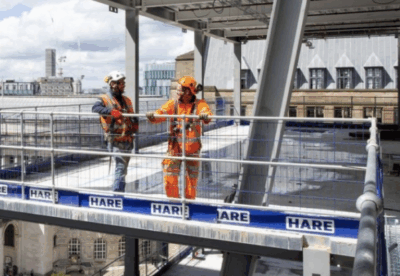The bellwether S&P Global UK Construction Purchasing Managers’ Index recorded 46.2 in September up from 45.5 in August.
The latest reading was below the neutral 50.0 valuenfor the ninth consecutive month and still signalled a solid rate of contraction.
The slower reduction in overall construction activity in September was helped by a weaker fall in residential building work (index at 46.8).
Civil engineering (42.9) was the weakest-performing segment, although activity also decreased at a softer pace than in August. Commercial construction (46.4) was the only sub-sector to register a faster rate of decline in September.
A lack of new project starts was again the main factor holding back construction output. September data indicated that order books deteriorated for the ninth month in a row, albeit only marginally and at the slowest pace over this period.
Tim Moore, Economics Director at S&P Global Market Intelligence, said: “September data suggested that the UK construction sector faced pressure on multiple fronts as residential, commercial and civil engineering work all continued to decrease at solid rates. Lower volumes of overall construction output have been recorded since January, although the latest reduction was the slowest for three months and the downturn in new orders was the softest so far in 2025.
“Business activity expectations for the year ahead were among the lowest since the end of 2022, suggesting that construction companies remained cautious about the near-term outlook and have yet to see a turning point on the horizon. Some firms hope for a boost from lower borrowing costs and noted new sales pipelines in areas such as energy security markets and infrastructure projects. However, many survey respondents reported caution among clients ahead of the Autumn Budget and a general reluctance to commit to major capital expenditure projects against a subdued domestic economic backdrop.
“Weak business optimism, shrinking workloads and robust cost pressures once again led to lower employment numbers across the construction sector. Lower staffing levels have now been recorded for nine months in a row, which is the longest period of job shedding since the pandemic.”













 (3).gif)




































.gif)







